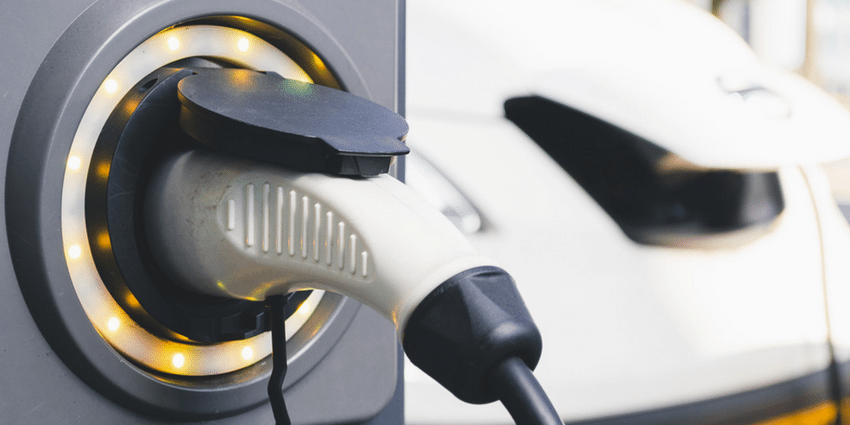One of the most notable trends in business today is the idea of making your operations and products more environmentally friendly. Whether based on your business’ own convictions or the desire of your target customers, going green can be an effective way to differentiate your business. And the fleet world is jumping onboard with the arrival of green fleet management.
Going Green – Skip the Greenwashing
But like any trend, the green movement has certainly attracted some dubious characters looking to cash in and boost sales with no sincere commitment to environmental outcomes. Dubbed “greenwashing”, these sorts of tactics are becoming less convincing to today’s savvy consumer.
Rather, consumers are more likely to buy into your eco-friendly claim if you provide specifics about your particular initiative rather than pasting some green stickers onto your existing products.
How Leading Companies are Pursuing Green Fleet Management
The extraction and use of fossil fuels is commonly cited as major contributor of ecological degradation, and the machines that use them, such as fleet vehicles, are central to this scrutiny.
For business that rely on fleet vehicles for their operations, letting potential customers know that they’re operating as efficiently as possible to deliver their products and or services can go a long way in influencing purchasing decisions.
Fuel efficient or alternative fuel vehicles have traditionally been confined to light duty and limited range operations. There are several new vehicles coming onto the market using battery or fuel cell technology poised to rival many positions held by conventional gasoline and diesel engines.
1. Ford and DHL Team Up to Build a Fleet of Electric Delivery Vans

Ford has partnered with DHL and created the “Street Scooter Work XL”. Source.
Ford Motors has collaborated with the international German logistics mogul Deutsche Post DHL to create an electric delivery van. The “Street Scooter Work XL” is built on a Ford chassis and is powered by modular battery drivetrain giving it enough power and capacity to perform DHL’s delivery routes.
As part of its shift toward green fleet management, DHL plans to have 2500 Street Scooter Work XLs in service by 2018 to be used in major cities across the world. Each van could potentially save 5 metric tons of carbon dioxide from being released into the atmosphere every year.
2. Cummins Announces All-Electric Powertrains to Be Available by 2019
Looking to stay ahead of the green fleet management curve, Cummins Engine Company is developing an electric powertrain solution targeted at the urban transportation sector. The newly designed engine is slated to be available by 2019 with an extended range model ready for 2020.
Cummins CEO, Tom Linebarger, sees electrification as a pivotal strategic direction for the company: “We will be the leader in electrified powertrains for urban transportation.”
The CEO’s pledge certainly indicates that research and development into electric engines will be a priority for the company. As the production of batteries and other electric components required to manufacture electric powertrains increases and the prices come down, the feasibility of making affordable electric drivetrains can only go up.
3. The City of Los Angeles Purchases Two Battery-Electric Refuse Trucks
When private businesses invest in eco-friendly fleet options it may be at a calculated cost to boost PR rather than the most economical option. But when public entities like governments, that are compelled by tax payers to make fiscally prudent decisions, choose electric vehicles (EV), it really proves the affordability and efficiency of modern EV technology.
EV manufacturer Motiv Power Systems announced that the Los Angeles Sanitation Department will be the third municipal entity in the US to purchase the zero emissions refuse trucks. People living in the communities where the trucks will be used can look forward to quiet early morning pick ups and cleaner air thanks to the all electric powertrain.
4. UPS Getting Ready to Deploy Prototype Hydrogen Fuel Cell Truck in California

UPS are developing fuel cell powered delivery vans. Source.
As part of its green fleet management efforts, UPS has partnered with the US Department of Energy, the Centre for Transportation and the Environment, the Centre for Electromechanics at the University of Texas and Unique Electrical Solutions LLC to develop a fuel cell delivery truck capable of both medium and long-range operations.
UPS anticipates that the collaborative prototype might even exceed the performance of their conventional trucks when it begins trial runs in Sacramento. Unlike pure battery powered electric vehicles that take time to charge, UPS’s new fuel cell delivery van will be able to refuel and extend its range in just a few minutes.
Hydrogen fueling stations are still relatively uncommon which may limit the operational territory of the fuel cell powered vehicle, but the delivery van is an exciting proof of concept that, if successful, should help spur along the creation of more hydrogen fueling stations.
Conclusion
Consumer demand and government initiatives will continue to drive exciting technological advancements that will in turn help the growth of green fleet management.
Electric vehicles will start springing up in major cities across the world, giving us cleaner air and more environmentally friendly methods of getting products brought to us. Consumers will have more and more choices when making purchasing decisions and will be able to factor in how the product and or services arrives at their door step when deciding how they’d like to spend their money.







